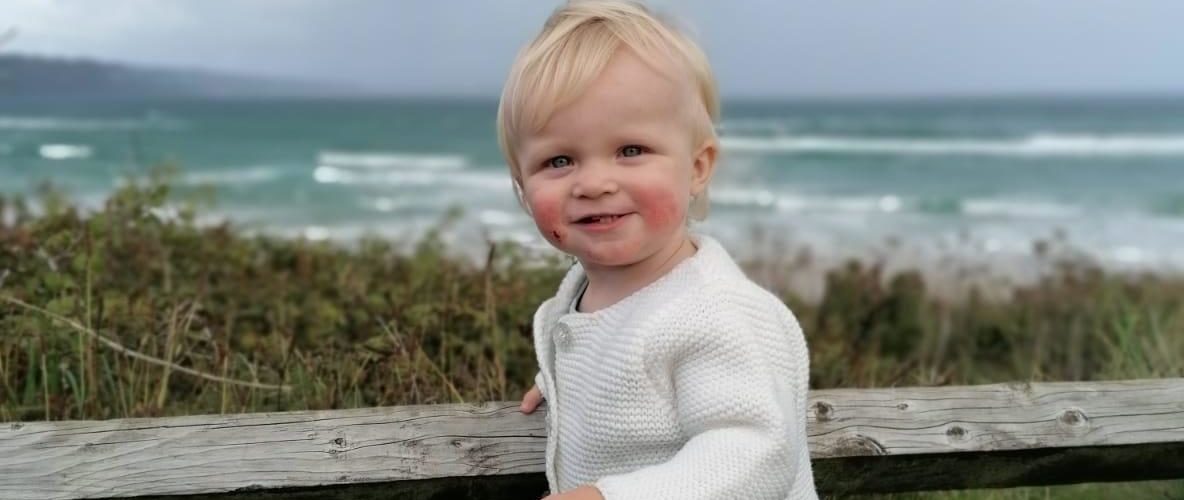Why we fly
Indigo’s Story
I couldn’t believe all the equipment that was on the helicopter to treat Indigo and monitor her condition while we were flying. It was amazing.
When 13-month-old Indigo suffered a series of strokes a few weeks after having chickenpox she needed specialist paediatric care at a hospital 340 miles away.
Indigo was on holiday with her mum, dad, brother and a group of friends when she had to be admitted to the Royal Cornwall Hospital in Treliske, Truro after she stopped using her left arm and leg and the left side of her face was drooping.
Emergency scans revealed that Indigo had two masses on either side of her brain and abnormalities in her heart. While these investigations were being carried out she was having regular seizures that were getting worse each time they happened.
Eventually Indigo had to be sedated and transferred to the Intensive Care Department while decisions were made about how best to treat her.
Her mum Leighanne explains:
“Staff at the Royal Cornwall Hospital decided this was a more serious condition than they were equipped to deal with and that Indigo would have to be transferred to another hospital. Consultants at Alder Hey Children’s Hospital in Liverpool were contacted and spoken to via video link about the best course of treatment. It was decided to transfer her there by helicopter which was a shock, but at the same time a great relief as I knew it was the quickest way for her to get the care she needed so urgently.”
The Children’s Air Ambulance took off from its base in Oxford and flew to Bristol to pick up a specialist retrieval team from Wales and West Acute Transport for Children Service (WATCh) to fly them to the Royal Cornwall Hospital.
On arrival the team prepared Indigo for the flight to Alder Hey Children’s Hospital and accompanied her in the helicopter. Leighanne was also able to join them for the flight as the helicopter has a seat for a parent to travel with their child.
It took 2 hours and 18 minutes to fly from Truro to Liverpool compared with a road journey in a land ambulance of 5 hours 39 minutes.
“I couldn’t believe all the equipment that was on the helicopter to treat Indigo and monitor her condition while we were flying. It was amazing. Most people have no idea that such intensive care takes place up in the sky,” says Leighanne.
As soon as they arrived at Alder Hey, Indigo was taken to the High Dependency Unit where she was given medication and fluids and monitored.
After undergoing more scans and lumbar punctures, it was discovered that the strokes she had suffered had been caused by a bout of chickenpox that Indigo had suffered a few weeks before.
“This viral infection (chickenpox) had caused Indigo’s immune system to attack her brain stems and create clots in her brain which broke free and caused the seizures,” explains Leighanne.
She stayed with her daughter in hospital for the 21 days it took to get her well enough to be discharged and go back to their home in Prestwich, Manchester. During that time Indigo was given intravenous antibiotics four times a day and had to have regular physiotherapy.
Thankfully, eight months after this frightening episode (April 2020), Indigo is a happy, active and very outgoing toddler who Leighanne says is “into everything.”
“I believe that without the Children’s Air Ambulance and the team on board she would not have received the vital specialist treatment she needed so urgently as quickly as she did and may not have survived. You gave me her life,” she adds.
Leighanne is so grateful she is planning a 10,000ft skydive to raise money for the Children’s Air Ambulance as a thank you. Her JustGiving page is: https://www.justgiving.com/fundraising/leighanne-haight





